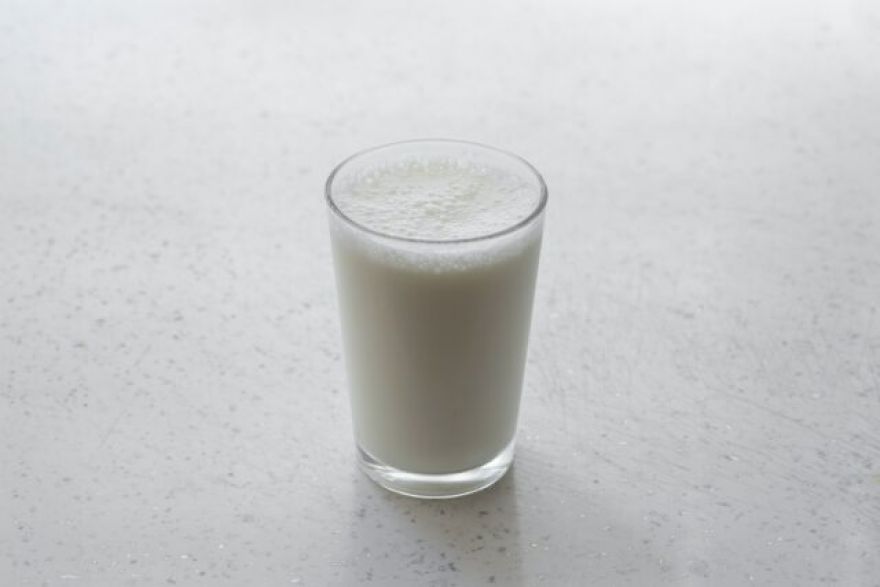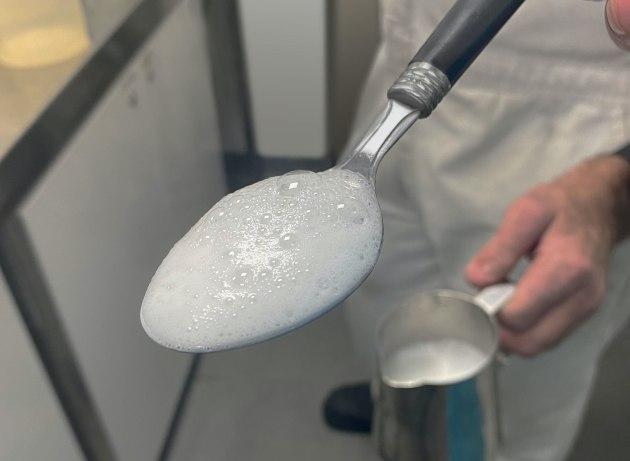
‘Lab-Grown’ Dairy Products Replace Cows With Yeast
Thanks to a novel form of milk synthesis, that might change.

(Photo: Eden Brew)
Eden Brew’s scientists begin by using synthetic DNA to genetically program yeast and other microorganisms to produce specific proteins. Cow’s milk contains about 20 different proteins, which are either considered casein or whey proteins. These lend cow’s milk its color, texture, and ability to withstand high heat, the latter of which is vital to avoiding curdling when added to coffee or stovetop meals. Eden Brew synthesizes six of these proteins in the lab, then dehydrates them to sell to dairy firms. Once a dairy firm obtains these proteins, it can rehydrate them and blend them into a marketable product. Minerals, plant-based fats, and a small quantity of sugar turn the proteins into a cow (and lactose) free competitor to what some now consider to be an outdated product.
American startups like Perfect Day and New Culture use similar precision fermentation processes to make proteins used in cow-free cheeses, yogurts, and ice cream products. In fact, they’re so successful that you may have previously eaten yeast-produced dairy products without even realizing it: many frozen desserts, chocolate bars, whey proteins, and other products that are advertised as “lactose-free” use these firms’ proteins in their recipes. Like animal-free “meat” products, lab-grown dairy products are even finding success with consumers who are indifferent about animal welfare and environmental concerns but find the products’ novelty intriguing.
Now Read: